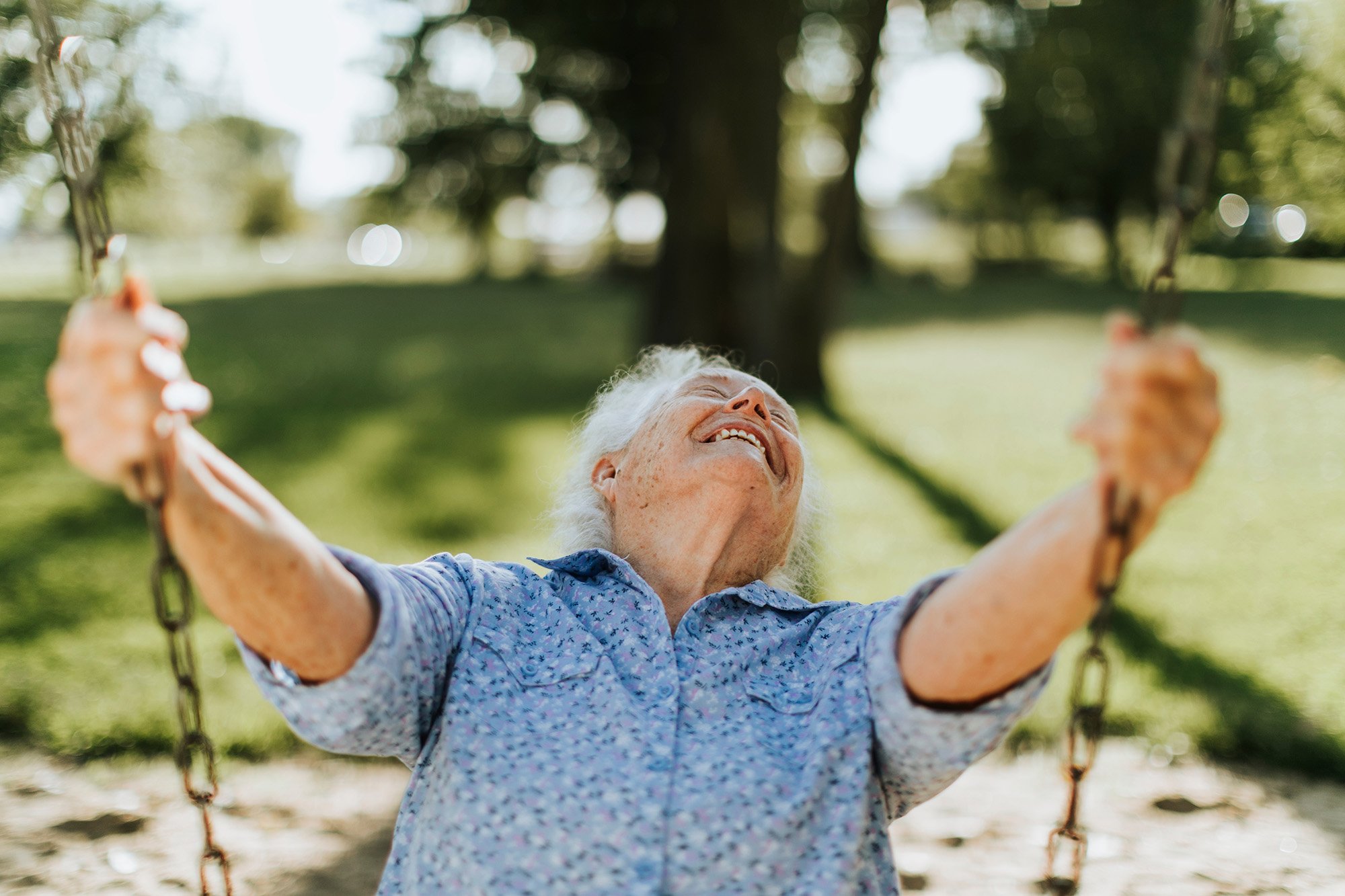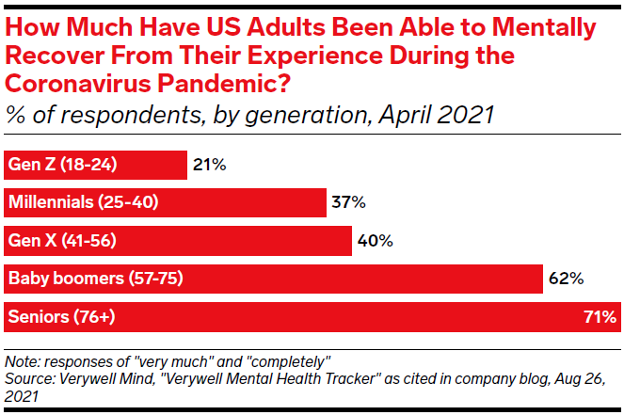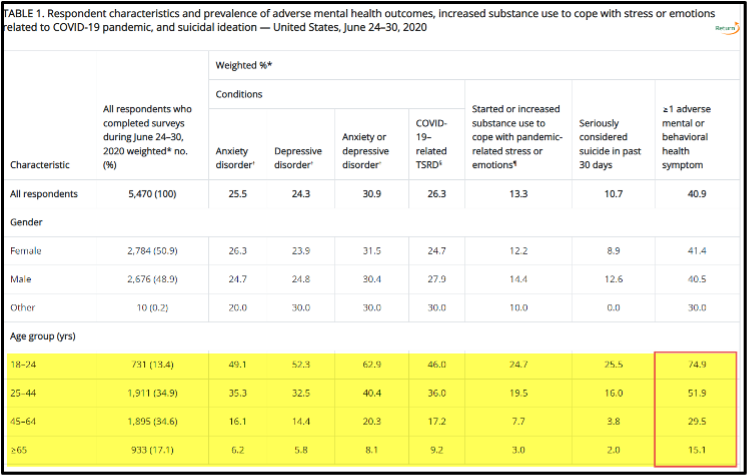Recognizing the Positivity of the Senior Consumer
June 1, 2023

There are a lot of reasons why the elderly should be grumpy. As we age, physical health declines. Cognitive health declines. You would think a senior’s mental health would decline as well. Yet, there is a growing body of evidence that suggests the mental health of older adults is generally better than that of their younger counterparts!
An interesting study regarding how the various generations mentally recovered from their experiences during the recent coronavirus pandemic might be described as “shocking.” As the chart below demonstrates, seniors (76+ yrs.) and Boomers (57-75 yrs.) emerged from the pandemic far better, mentally, than younger generations.

Note that there is a significant gap between Boomers and seniors versus the younger cohorts!
Another survey by the Centers for Disease Control and Prevention (CDC) – conducted a year earlier in 2020 – is similarly instructive. Adults 65+ endured COVID-19 with considerably less anxiety, depression, or any other type of mental or behavioral health symptoms than younger generations.

Keep in mind that COVID-19 was significantly harder on older adults than younger cohorts. One in every 100 people over 65 died of COVID-related causes, while the rate was one in 1,400 for everyone under 65, according to The New York Times. Boomers between 65 and 74 years old make up 9.6% of the U.S. population but accounted for 22.6% of all COVID-19 deaths as of March 17, 2022, according to CDC data.
So, why were Boomers and seniors better able to cope with lock downs, social distancing, and other COVID-driven measures better than the younger generations?
Older But Wiser
One reason is that older adults enjoy the benefit of life experience. They have experienced adversity in a variety of forms over their lifetimes and can look at a trying situation they are facing through the lens of historical perspective. Because they had to deal with stressful situations in the past, they developed coping strategies they can employ with each new stress-causing situation they face. As a result, they typically have confidence they will be able to navigate any new situation as well. Call it “wisdom” – wisdom that provides ways to address a tough situation plus greater resilience to bounce back from whatever setbacks that situation might deliver.
As a result, seniors tend to enjoy better mental health than younger generations in times of crisis, as reflected in the survey results above. They experience less anxiety. Lower stress levels. Decreased risk of depression. And an improved sense of well-being.
So, What’s This Got to Do with Advertising?
Seniors are not a beaten-down consumer group. Because they have faced challenges over the years and successfully managed those challenges, they see themselves as strong and capable. And that’s how they want to be portrayed in advertising. Ads should present seniors as active and energetic. Healthy and fit. Intelligent and experienced. Fun and enjoying life.
Pollster Frank Luntz, in his book Rocking The Ages, states that people over seventy feel thirteen years younger than their chronological age (and they think they look it, too!). So, they don’t like advertising that assaults their infirmities, because they don’t recognize those infirmities in themselves. They are more likely than their younger counterparts to employ an active filter when they look at things, prioritizing things that are positive and deprioritizing things that are negative.
It boils down to this: seniors want and expect to thrive in their daily living. Advertising that plays to these expectations will be well received, because those ads will meet seniors where they are – mentally and emotionally.





